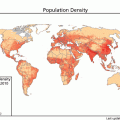Classification: ICD-9 036.0; ICD-10 A39.0
Syndromes and synonyms: None
Agent: Neisseria meningitidis, a Gram-negative aerobic diplococcus. Pathogenic N. meningitidis produce a polysaccharide capsule, used for serogrouping. Five serogroups are responsible for most cases: A, B, C, W135, and Y.
Reservoir: Humans. Asymptomatic carriage of N. meningitidis in the oropharynx is common, although carriage rates vary widely by geographic and epidemiological setting. The carrier state is immunizing and development of meningococcal disease is associated with recent acquisition.
Route of transmission: N. meningitidis is transmitted from person to person by respiratory droplets.
Incubation period: 2–10 days, commonly 3–4 days
Clinical findings: Classically meningococcal meningitis presents with fever, headache, neck stiffness, photophobia, nausea, and vomiting. In infants and young children the clinical picture may be non-specific. If the patient also has meningococcal bacteremia, a hemorrhagic skin rash may be seen.
Diagnostic tests: Gram stain and microscopy of cerebrospinal fluid, and culture. Latex agglutination tests for detection of group-specific capsular polysaccharide. PCR.
Therapy:
Stay updated, free articles. Join our Telegram channel

Full access? Get Clinical Tree




